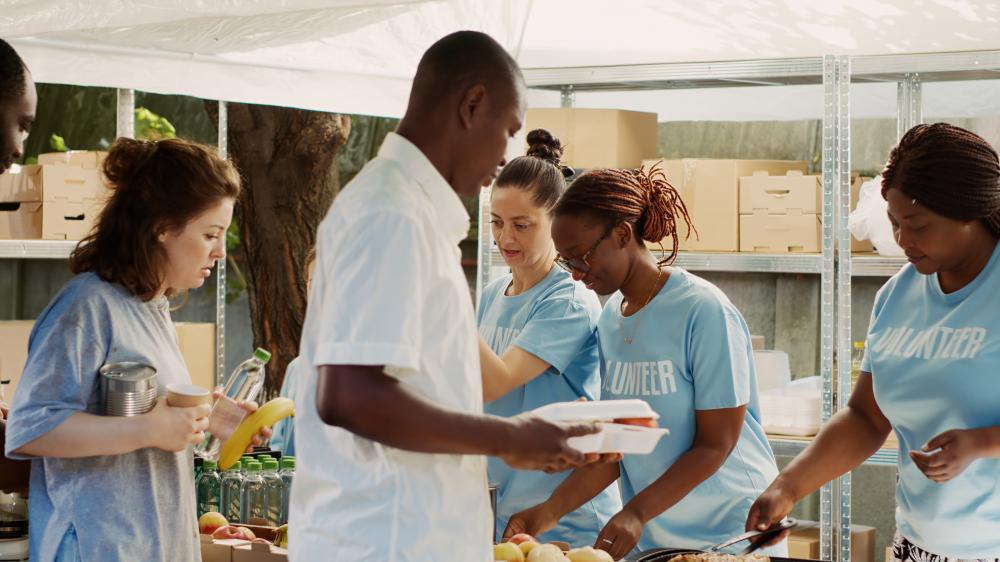
Building Community Through Local Events
Organizing Local Events is more than just planning gatherings; it’s about fostering community spirit and creating meaningful connections among residents. Origen, with its focus on health, vitality, and freedom, excels in crafting events that resonate with its mission. Community is the bedrock of transformation, and by orchestrating events, Origen aims to strengthen this foundation.
At Origen, events are seen as a catalyst for change, bringing people together in an inclusive and supportive environment. By tapping into the collective energy of a community, members can experience a profound sense of belonging and purpose. Whether it’s a small neighborhood gathering or a significant town-wide festival, each event is an opportunity to cultivate relationships and strengthen communal ties.
From our personal experience in hosting diverse events, we have found that the key lies in understanding the unique identity and needs of the community. Every locality has its pulse, and by aligning events with this rhythm, we endeavor to create experiences that are not only memorable but also transformative.
Sustainable Practices for Event Planning
At Origen, sustainability is a core value reflected in Organizing Local Events. Our approach involves integrating eco-friendly practices to ensure that events align with environmental consciousness. By prioritizing green initiatives, we aim to inspire others to embrace sustainable living.
One effective strategy is to implement zero-waste policies during events. This can involve utilizing reusable materials, ensuring proper waste segregation, and collaborating with vendors who share a commitment to sustainable practices. By demonstrating care for the environment, we hope to motivate participants to adopt similar habits in their daily lives.
Additionally, Origen emphasizes the importance of educating attendees on the benefits of sustainability. Incorporating workshops on eco-friendly living or hosting seminars on the impact of environmental practices can ignite a community-wide commitment to protecting our planet.
Empowering Through Education and Skill Development
Education plays a vital role in Organizing Local Events at Origen. By offering educational opportunities, we empower individuals to take charge of their personal growth and development. Our events often feature workshops and sessions that cover a diverse range of topics, from health empowerment to leadership skills.
During these events, participants can engage in learning experiences that enhance their understanding of wellness, mindfulness, and community engagement. For instance, workshops on mindfulness techniques not only provide stress management tools but also encourage individuals to approach life with greater awareness and intentionality.
Moreover, we believe in the transformative power of skill-sharing. By inviting community members to lead workshops in their areas of expertise, we create a dynamic exchange of knowledge and experience. This collaborative approach fosters a spirit of inclusion and mutual support, aligning with Origen’s vision of interconnectedness.
Anecdotal evidence from past events shows that attendees often leave feeling inspired, equipped with new skills, and eager to contribute more actively to their community.
Anecdotal Insights and Overcoming Challenges
In our journey with Organizing Local Events, we have encountered various challenges that shed light on the complexity of event planning. An unexpected rainstorm once threatened to derail an outdoor wellness fair, challenging our team to think swiftly and adapt the plan to an indoor venue. Such experiences underscore the importance of flexibility and resourcefulness in event management.
Feedback from participants also highlights the significance of meticulous planning and attention to detail. One attendee shared how a seamless registration process and well-organized schedule made their experience remarkably pleasant and stress-free. These insights push us to continually refine our processes, ensuring every event runs smoothly and leaves a lasting positive impression.
The Importance of Collaborative Projects
In today’s interconnected world, collaborative projects for community engagement have become indispensable for fostering growth and development. These projects allow individuals and organizations to pool resources, share expertise, and work towards common goals that benefit society.
Through collaborative efforts, communities can address complex social issues more effectively, as diverse perspectives and skills come together to create innovative solutions. When entering collaborations, it is crucial to respect and value each contributor’s input, ensuring that everyone feels a sense of ownership and commitment to the project’s success.
From my experience with Origen, a transformative network aimed at empowering individuals, I can vouch for the positive ripple effects that result from successful collaborations. We’ve seen how working together can lead to not only personal growth but also the upliftment of entire communities.
Building Effective Collaborations
Establishing a strong foundation is key to the success of collaborative projects for community engagement. Here are some crucial elements:
- Shared Vision: Collaborators must align on a shared vision that guides their actions and decisions. This vision helps to maintain focus and ensures that all efforts contribute towards common objectives.
- Clear Roles and Responsibilities: Clearly defined roles prevent overlaps and confusion, enabling each participant to give their best without hindrance.
- Open Communication: Encouraging open dialogue fosters trust, allowing participants to express ideas freely and make informed decisions.
At Origen, we emphasize the significance of a supportive community where individuals are inspired and encouraged to participate actively. By fostering a spirit of inclusivity and mutual respect, we create environments where collaboration thrives, and innovative solutions emerge.
Another critical aspect is the willingness to adapt and evolve. Collaborations should be flexible to accommodate changes and unforeseen challenges while remaining steadfast in their mission to enhance community engagement.
Innovative Approaches in Collaborative Projects
Collaborative projects for community engagement require fresh approaches to ensure continued relevance and impact. One strategy is employing technology to bridge geographical barriers and connect a diverse range of participants. Online platforms and tools facilitate real-time communication, resource sharing, and collaborative planning, making distance a non-issue.
Origen has tapped into this potential by creating virtual communities where members can engage in discussions, access resources, and support one another. This approach not only enhances engagement but also broadens the project’s reach, drawing in participants from various cultural backgrounds.
Embracing a holistic approach to collaboration, Origen integrates practices that empower individuals physically, mentally, and spiritually. The “Freedom Method” guides participants in adopting healthier lifestyles, focusing on holistic well-being, and achieving personal fulfillment while contributing to the greater good.
Lastly, it is vital to measure the impact of collaborative projects to ensure they achieve their intended outcomes. Regular evaluations and feedback loops help identify areas for improvement and celebrate successes, ultimately leading to more effective and meaningful community engagements.
Creative Approaches to Fundraising
Engaging the community in fundraising initiatives can bring a sense of unity and shared purpose. At Origen, we embrace innovative Fundraising Ideas for Community Initiatives that not only meet financial goals but also reinforce community bonds. One effective approach is by hosting themed events. Whether it’s a vibrant street fair or a cozy community dinner, events provide a platform for members to connect, contribute, and enjoy. Think outside the box – a sustainability fair showcasing eco-friendly products or an art show featuring local talents could capture interest and stimulate donations.
Virtual endeavors can significantly broaden your audience reach. Consider organizing an online auction where community members and local businesses donate items or services. This approach not only provides a fundraising opportunity but also promotes local artisans and entrepreneurs. Origen leverages technology for virtual cooking classes or wellness sessions, allowing participants to donate a fee for a cause while gaining valuable skills or insights.
Impactful storytelling can drive donations. Share personal stories of those who benefit from your initiatives through social media platforms. Create video testimonials and blog posts that communicate the real-world impact of contributions. By illustrating the journey from donation to success story, you make the intangible benefits of giving tangible and compelling.
Unlocking Community Potential
Businesses within your community can play a pivotal role in fundraising. At Origen, we’ve found that collaborating with local enterprises not only enhances financial support but also forges stronger community ties. Local businesses might sponsor events or even dedicate a percentage of a day’s sales to your cause, providing an excellent Fundraising Idea for Community Initiatives. Ensure mutual benefits by offering visibility and recognition in your promotional materials or events.
Engage with local leaders and influencers who are passionate about your cause. They can amplify your message through their networks, bringing in diverse participants and donors. Collaborations with community leaders can inspire innovative fundraising concepts like neighborhood challenges or community service days where residents collectively contribute to a shared mission.
Crowdfunding platforms offer a modern twist to traditional fundraising. These platforms enable you to reach a broad audience while showcasing your initiative’s specific needs and goals. When crafting your crowdfunding campaign, emphasize how contributions will directly impact the community, whether it’s through building a new community space or launching a local wellness program. Encourage supporters to share the campaign within their networks to exponentially increase visibility and support.
Community shares can be another innovative avenue, allowing people to invest in local assets. Imagine owning a share in a revitalized park or a community garden. This model not only raises funds but also fosters a sense of ownership and responsibility towards the initiative’s success.
Educational and Engagement-Focused Fundraising
Educational workshops and classes not only serve as Fundraising Ideas for Community Initiatives but also provide valuable knowledge to participants. Origen runs workshops on sustainable living, health empowerment, and leadership skills, asking for a small donation for participation. This dual-purpose method ensures everyone leaves enriched and inspired while supporting the community financially.
Consider a bold initiative like a “community learning festival” where attendees can participate in various workshops, from mindfulness techniques to eco-friendly practices. By offering a diverse array of classes taught by local experts, the community not only benefits from the knowledge shared but also raises substantial funds through event participation fees.
Another engaging approach is hosting “challenge events” where participants raise funds through sponsorships tied to completing personal goals. Whether it’s a fitness challenge, a digital detox, or a creative arts marathon, these events promote personal growth and community wellbeing.
Ultimately, the key to successful fundraising lies in creativity, engagement, and alignment with community values. By integrating personal insights and fostering active participation, Origen supports Fundraising Ideas for Community Initiatives that energize and empower, while cementing the community’s collective strength and commitment to shared goals.

How to plan a local event?
At Origen, planning a local event starts with understanding the community’s unique needs and interests. Begin by identifying a clear objective for your event–whether it’s to build community engagement, raise funds for a cause, or celebrate a special occasion. Next, assemble a team or group of volunteers who share your vision. Together, outline your event’s logistics, such as the date, location, and budget. Creating a comprehensive checklist can help ensure that you cover all bases, from permits and insurance to marketing and outreach.
Engaging the community early in the process can also help tailor the event to their expectations, making it more memorable and effective. Additionally, don’t hesitate to reach out to local businesses for sponsorship or collaborative opportunities. Learning from past events is invaluable; reflect on what has worked well and what needs improvement to refine your approach. Remember, the essence of successful event planning lies in adaptability and effective communication.
What are the 7 stages of event planning?
Event planning generally follows a sequence that can be broken down into seven key stages: research, design, planning, coordination, confirmation, implementation, and evaluation. At Origen, we emphasize research to identify community needs and potential challenges. In the design phase, we craft an event concept that aligns with our mission of promoting health and vitality. Planning involves securing a venue, drawing up a budget, and creating a timeline, while coordination focuses on managing logistics, such as catering and transportation.
Confirmation requires assuring everything is set to go, including finalizing any agreements with vendors or partners. Implementation is the execution stage, where we put our plans into action on the event day, ensuring everything runs smoothly. Lastly, we evaluate the event by collecting feedback from participants and team members to identify successes and areas for improvement. This reflection helps us continuously enhance our future events, ensuring they resonate deeply with the community.
How to set up a community event?
Setting up a community event begins with a deep understanding of your audience and their interests. This connection is crucial to Origen’s success in fostering vibrant community interactions. Once you identify the event’s purpose, engage with community leaders and stakeholders to garner support and gather insights. Consider forming committees to handle various aspects of the event, from logistics to marketing. Selecting an accessible and relevant venue is key to ensuring high participation.
Communication is vital; leverage social media, community boards, and word-of-mouth to spread the news. On the day of the event, ensure that your team is well-prepared with contingency plans for potential hiccups. Gathering feedback post-event is valuable for future planning and shows attendees that you value their opinions. Remember, a well-executed community event not only meets its immediate goals but also strengthens ties and emboldens the collective spirit of the local populace.
How do you organize a small event?
Organizing a small event can be just as rewarding and impactful as larger gatherings. At Origen, we often find that intimate events foster deeper connections and a more personal touch. Start by clarifying the purpose and scope of your event. This could range from a workshop on mindfulness to a small fundraiser for a community project. Choose a venue that suits the size and nature of your gathering, whether it’s a cozy cafe or a communal space.
With limited resources, prioritize tasks such as invitations, equipment, and refreshments. Personal touches, like themed decorations or specialized activities, can significantly enhance the experience. Make sure to communicate effectively with your attendees through personalized invitations or reminders. After the event, follow up with feedback requests to understand what resonated most. This insight is critical to refining your approach and ensuring your small events continue to leave a big impression.
Resources
- Environmental Protection Agency – The EPA offers valuable resources on sustainable practices, environmental consciousness, and eco-friendly initiatives.
- U.S. Department of Education – The Department of Education provides information on education, skill development, and empowerment through learning.
- United Nations – The UN highlights the importance of collaborative projects for global development and community engagement.
- Centers for Disease Control and Prevention – The CDC offers insights on innovative approaches to collaborative projects and community well-being.
- National Park Service – The NPS promotes community engagement through creative approaches to fundraising and sustainability.
